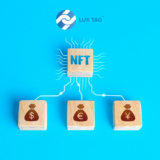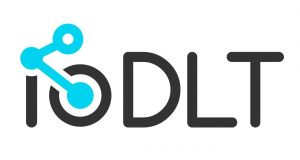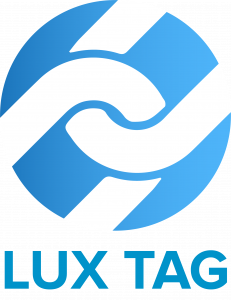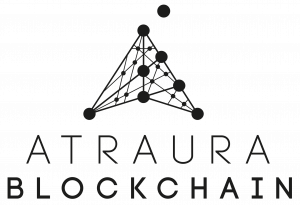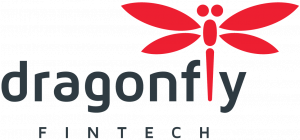LuxTag skips ICO, strives for blockchain use cases

First appeared on Crypto News Asia
LuxTag’s co founders: Jeff McDonald, Rene Bernard and Faeez Noor.
In efforts to service real use cases for blockchain technology, one company in Southeast Asia is making some notable inroads.
Little known LuxTag Sdn Bhd (named after the idea of tagging luxury goods on blockchain) stands out for a few reasons.
For one, the company has not embarked on an ICO and has no plans to do so. Secondly, it is co-founded by a relatively big name in the industry, namely one of the early contributors to the NEM blockchain protocol, Jeff McDonald. And thirdly, the company is tirelessly working in Malaysia, a country not known yet as a blockchain hub, but could end up becoming a test bed for some blockchain applications which could then be exported to the world.
One of its main projects involves working with universities in Malaysia to come up with a blockchain solution that enables the authentication of university degrees and transcripts. Such a solution would ensure that employers, for example, would no longer need to be concerned about how authentic prospective employee degrees are.
LuxTag is hoping to rope in the Ministry of Education (MOE) and facilitate a consortium of public universities to co-create the blockchain based solution against falsified education certificates.
LuxTag’s CEO Rene Bernard, and its CFO, Faeez Noor, have spent time espousing the benefits of blockchain through talks at public universities in Malaysia for some time now. LuxTag is also pursuing a project with a local artist Poesy Liang to secure her paintings on the blockchain.
Bernard explains: “We are in a partnership to implement a blockchain solution that authenticates and records provenance of Liang’s artwork. Provenance tracking is a blockchain-powered tagging solution developed by LuxTag for Poesy Liang,” adding that LuxTag is white labelling their blockchain technology to cater to various industries.
McDonald believes that LuxTag’s blockchain technology is a leap forward.
“Many people who talk about putting something on the blockchain are doing first generation stuff. Most projects are merely putting a message on the blockchain that says this item was created. Luxtag does not just write a message but gives each item an individual certificate. We are bringing that item into the blockchain so that it has a life of its own.”
Using the example of a piece of painting, what LuxTag is putting on the blockchain is not just a serial number of that painting, but linking to high resolution photographs of parts of that painting. They are also exploring a way to embed the serial number into the painting’s frame in such a way that the painting will have to be torn or broken before you can try to tamper with that serial number.
“With any luxury goods product, we can stop counterfeiting, by making it not economically feasible to do so” says McDonald.
LuxTag, though, has its challenges. While its solution is ideal for the global luxury goods industry, it is not easy for a Malaysian-based start-up to convince the global big names that they have a workable solution for them. “While Malaysia has its positives, it is not an ideal base to go after the global luxury brands,” he adds.
That said, LuxTag has started a project with a US-based apparel company called DeFeet Inc, that makes socks for cyclists. “We are close to full deployment of a project where some of their product lines will have our tagging solutions, enabling the brand to tackle grey market transactions and enhance direct customer engagement,” says Faeez.
On funding, the choice of not going through the ICO route is mainly due to the lack of clarity on the legality of such fund-raising mechanisms.
“Our intention is to create, enforce and enable trust in the authenticity of products and to get contracts with large organisations, brands and government agencies. If we were an ICO-funded company, this would not bode well, for our reputation,” explains Bernard.
“Most ICOs do not have proper regulatory recognition,” adds Faeez.
McDonald though has a more interesting perspective. “It is also a stupid business model if you want to have a real world company adopt your technology. Lets say LuxTag approaches a big global brand owner and pitches to them the technology to secure their products on the blockchain. But then they will have to pay with our own “LuxTag coins”. That will not sit well with any global brand,” McDonald opines.
He has spoken about these challenges before at conferences in Asia, warning that companies should not get obsessed with what he calls the “digital bling bling” and focus instead of building real world technology solutions on the blockchain.
LuxTag, which was set up in late 2016, was initially bootstrapped for the first six months by its three founders, says Faeez.
Subsequently, LuxTag secured two grants, one from PlaTCOM Ventures Sdn Bhd, the venture arm of Agensi Inovasi Malaysia of around RM425,000 (US$105,000) and the other a community grant from NEM amounting to 2.4 million XEM tokens. This enabled LuxTag to build up its business without having to lose any equity, which are largely held between the three founders. Recently, US-based xSquared Ventures took a 9% stake in LuxTag at US$600,000, valuing the start up at US$6.6mil.
“Our runway now can last us for at least another 2 years,” says Faeez.


